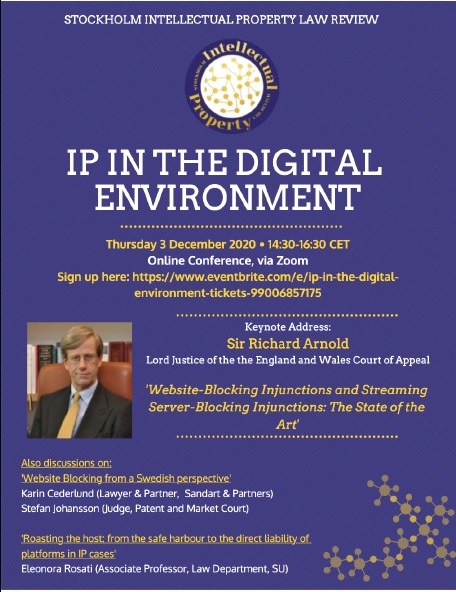[fusion_builder_container type=”flex” hundred_percent=”no” equal_height_columns=”no” menu_anchor=”” hide_on_mobile=”small-visibility,medium-visibility,large-visibility” class=”” id=”” background_color=”” background_image=”” background_position=”center center” background_repeat=”no-repeat” fade=”no” background_parallax=”none” parallax_speed=”0.3″ video_mp4=”” video_webm=”” video_ogv=”” video_url=”” video_aspect_ratio=”16:9″ video_loop=”yes” video_mute=”yes” overlay_color=”” video_preview_image=”” border_color=”” border_style=”solid” padding_top=”” padding_bottom=”” padding_left=”” padding_right=””][fusion_builder_row][fusion_builder_column type=”1_1″ layout=”1_1″ background_position=”left top” background_color=”” border_color=”” border_style=”solid” border_position=”all” spacing=”yes” background_image=”” background_repeat=”no-repeat” padding_top=”” padding_right=”” padding_bottom=”” padding_left=”” margin_top=”0px” margin_bottom=”0px” class=”” id=”” animation_type=”” animation_speed=”0.3″ animation_direction=”left” hide_on_mobile=”small-visibility,medium-visibility,large-visibility” center_content=”no” last=”true” min_height=”” hover_type=”none” link=”” border_sizes_top=”” border_sizes_bottom=”” border_sizes_left=”” border_sizes_right=”” first=”true”][fusion_text columns=”” column_min_width=”” column_spacing=”” rule_style=”” rule_size=”” rule_color=”” hue=”” saturation=”” lightness=”” alpha=”” content_alignment_medium=”” content_alignment_small=”” content_alignment=”” hide_on_mobile=”small-visibility,medium-visibility,large-visibility” sticky_display=”normal,sticky” class=”” id=”” margin_top=”” margin_right=”” margin_bottom=”” margin_left=”” fusion_font_family_text_font=”” fusion_font_variant_text_font=”” font_size=”” line_height=”” letter_spacing=”” text_transform=”” text_color=”” animation_type=”” animation_direction=”left” animation_speed=”0.3″ animation_offset=””]
Conference Recap
2020 SIPLR Conference – IP in the Digital Environment
On 3 December 2020, the Stockholm Intellectual Property Law Review held their annual conference, this year looking at the topic of ‘IP in the Digital Environment’. First off, we would like to extend our gratitude to all of our sponsors. They have been a great support in helping us realise our biannual journal as well as organising this conference!
It was our honour to host Sir Richard Arnold as the keynote speaker on the topic of website and streaming server-blocking injunctions. During his speech he addressed the different ways in which liability can be attributed in general, before diving into the more specific notion of intermediary liability of websites and streaming services under UK as well as EU legislation. This notion of liability is created when the platform, acting as an intermediary, has the duty to prevent the users of the platform from committing IP infringement. The platform is not equally liable for the infringement as the primary infringer would be.
A legal basis in EU law can be found in Recital 59 of the Directive 2001/29 (InfoSoc Directive), furthermore codified under Article 8(3) of the InfoSoc Directive. Additionally, the notion is found in the Directive 2004/48 (Enforcement Directive), where it is mentioned in Recital 23 as well as Article 11.
Next, Sir Arnold engaged in discussing the Cartier v Sky case and the position that was taken by England and Wales with regards to blocking injunctions. This case was the first instance that the UK courts have had to deal with the imposition of an injunction of a website in relation to trade marked products. Following the Cartier case, a set of criteria was established to determine if the threshold for imposing a blocking injunction had been met. There needed to be an intermediary, i.e., a platform that facilitates the posting of content by users; the users of the platform needed to infringe any sort of IP right by making use of the intermediary’s platform; and finally, the intermediary needed to know this infringement was taking place.
When a blocking injunction is imposed, the measure needs to satisfy a set of principles, as set out in Article 3 of the Enforcement Directive, and it must be: 1) necessary, 2) effective, 3) dissuasive, 4) not unduly costly or complicated, 5) avoid barriers to legitimate trade, 6) strike a fair balance between the fundamental rights in play, 7) proportionate and 8) safeguarded against abuse (as in L’Oréal v eBay case).
Concluding his speech, attention was drawn to the diversity in the practice of imposing blocking injunctions throughout Europe and whether there is a need to have a harmonised framework on the European or international level. In his opinion, there are 3 reasons why there is such a differing approach to imposing injunctions. Firstly, as the EU legislation on this topic is codified through Directives, it is up to the domestic legislature to transpose the provisions into the domestic laws. This interpretation and implementation varies and has not yet been fully harmonised through CJEU case law. Secondly, the issue of what constitutes a communication to the public still provides difficulties with regards to inter alia hyperlinking of content. Thirdly, there is no EU harmonisation as to what accessory liability is.
In sum, Sir Arnold made a recommendation that a more harmonised legal framework should be established in both the EU as well as the international level.
The next guest welcomed was Stefan Johansson, a judge at the Swedish Patent and Market Court. He opened up the discussion on website blocking injunctions from the perspective of Sweden, which has been subject to very little litigation before the Swedish courts. The Swedish interpretation of Article 8(3) of the InfoSoc Directive is that an injunction may be granted even when there is a contribution to an act of infringement regardless of whether there is an intent or negligence to the infringing act.
More interestingly, Sweden has taken the approach that injunctions can be applied also in cases where the intermediary would be covered under the safe harbour principle, as provided under the E-Commerce Directive (2000/31).
Following the implementation period of the InfoSoc and Enforcement Directives, Sweden has evolved its legislation in order for it to include that an internet service provider (ISP) can be ordered to reveal the identities of any infringers on their platform. Additionally, they can order an ISP to stop any and all of its contributions to the infringements by blocking the internet access to service providers that facilitate infringement, i.e. The Pirate Bay torrenting website. The most recent legislative development allows for the Swedish government to take ownership over domain names that facilitate infringing activities in order to have them blocked.
Thereafter, Karin Cederlund (partner at Sandart & Partners) joined the discussion and further elaborated on the scope of blocking injunctions in Sweden. In the most recent case (PMT 13399-19) dealing with such injunctions, the Patent and Market Court differentiated between 3 different ways of blocking. First, the traditional blocking injunction which orders an ISP to block a given list of domain names. Second, the dynamic blocking injunction which can be amended over time to include new domain names that have the sole purpose of facilitating the access to infringing materials. These domain names need to be communicated to the ISP by the right IP rights holders in order for those names to be added to the blocking order. Lastly, the interim blocking injunction.
It is of great importance that the injunction order is clearly defined so as to not to create any confusion as to what is and what is not allowed to be done. The applicant for the injunction will set out the scope of the injunction in their application to the court. The court is then free to either limit or expand the scope of the injunction as it sees fit. The courts have the option to choose between a result-based injunction, which leaves it up to the ISP to determine the measures as long as it achieves the requested result, or an approach-based injunction where the court gives specific measures that need to be put in place by the ISP.
Last but certainly not least, we welcomed Dr Eleonora Rosati Professor at Stockholm University, Director at IFIM, and Of Counsel at Bird & Bird. She talked about how we get from the safe harbour principle to a direct liability on the side of online platforms in relation to IP infringement,most specifically, focusing on hosting providers.
A global overview was given starting from the Svensson judgment (C-466/12) followed by GS Media (C-160/15), Filmspeler (C-527/17), Ziggo (C-610/15) and finally the Advocate General Opinion in the Joined Cases C-682/18 and C683/18, showing that quite a bit of change has taken place in the development of liability for hosting platforms. Advocate General Szpunar has voiced his Opinion in relation to the Ziggo judgment, when he said that it would be beneficial to have accessory liability regulated on the EU level rather than in the domestic systems. Since the infringement of IP on hosting platforms is not confined to the borders of a country, it would be unduly burdensome for the IP holders to have to protect their rights before a wide selection of domestic courts. Having recourse to an EU court would resolve this burden on the right holders.
A reaction to this need for harmonisation can be found in the Digital Services Act package proposed by the European Commission, revealed on the 15 December 2020. The supporting IP action plan states that the proposal will clarify as well as update the responsibility that is carried by an online platform. The proposal is aimed at harmonising a set of proportionate, specific, and binding commitments for online hosting platforms.
Whilst we await the judgment in the pending case C-682/18, a good discussion can be had on the potential jump from liability for platforms like The Pirate Bay, as was the case in Ziggo, who facilitate the commission of infringing acts by its users, to a same level of liability for platforms like YouTube, who are not directly facilitating the infringement of protected content. According to the Opinion of Advocate General Øe given in the aforementioned pending case, this jump in liability would be unwise. However, he did not contest that there could be some level of secondary liability on behalf of the hosting platform, in this case YouTube.
[/fusion_text][/fusion_builder_column][/fusion_builder_row][/fusion_builder_container]


Comments are closed